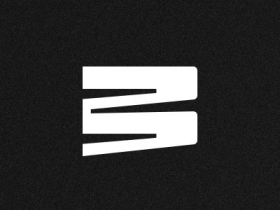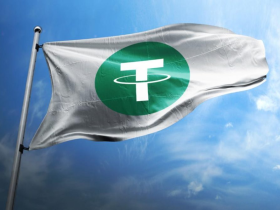Securing your digital assets is crucial in the constantly changing world of cryptocurrencies. Choosing the appropriate cryptocurrency wallet is an essential first step in protecting your investments. We’ll explore the complex world of cryptocurrency wallets in this tutorial, with an emphasis on the best options for 2024.
Types of Crypto Wallets
Understanding the various kinds of cryptocurrency wallets that are available—each meeting distinct security requirements and preferences—is essential to navigating their varied terrain. The primary types of wallets will be dissected in this part, along with information on their features, benefits, and possible downsides.
Hardware Wallets: Hardware wallets are tangible objects made especially for offline cryptocurrency storage. Because private keys are kept offline and out of the reach of any online threats, these wallets offer an additional degree of security. Trezor and Ledger are well-known brands of hardware wallets. Even though they are among the safest solutions, consumers who need frequent access to their assets can find their physical characteristics less convenient.
Software Wallets: Software wallets come in various forms, including desktop, mobile, and online wallets. They are applications or software programs that store private keys on a device connected to the internet. Desktop wallets offer enhanced security compared to online wallets, as the private keys are stored locally. Mobile wallets, on the other hand, provide portability and convenience for users on the go. Examples include Exodus (desktop), Trust Wallet (mobile), and MyEtherWallet (online).
Paper Wallets: With paper wallets, private keys are physically stored on paper documents, typically as written keys or QR codes. Because they are impervious to online hacking efforts, paper wallets are regarded as being extremely secure. To avoid bodily harm or loss, they must be handled carefully. Users should exercise caution regarding the possible hazards linked to creating paper wallets on hacked systems.
Multi-Signature Wallets: Wallets with multiple signatures increase security by needing different private keys to approve a transaction. When distributing wallet control among a group of individuals or in commercial contexts, this method is frequently employed. Wallets with multiple signatures increase security by reducing the possibility of a single point of failure.
Web Wallets: Web wallets can be accessed from any device with an internet connection and work with web browsers. Online platforms may be vulnerable to hacking attempts; therefore, users should exercise caution even when they offer convenience. Selecting trustworthy web wallets and turning on extra security features like two-factor authentication are essential.
Mobile Wallets: If you prefer to manage your cryptocurrency assets while on the road, mobile wallets—which are specifically made for smartphones—offer a practical solution. They provide a balance between security and usability. Well-known mobile wallets with features like in-app exchanges and simple portfolio tracking are Coinbase and Atomic Wallet.
Users need to carefully consider their security priorities and preferences when selecting a cryptocurrency wallet. The wallet recommendations for 2024 will be covered in detail in the parts that follow, giving users a road map to help them decide what’s best for them given their own set of requirements and preferences.
Best Crypto Wallets for 2024
Choosing the appropriate wallet is essential for maintaining the security and usability of your digital assets as the cryptocurrency market develops. A few wallets will stand out in 2024 due to their features, standing, and dedication to fulfilling the various needs of consumers.
Ledger Nano X: In 2024, the Ledger Nano X is still a highly regarded hardware wallet option. This portable device is well-known for its strong security features, which include secure chip technology, and it supports a large number of cryptocurrencies. With Bluetooth connectivity, the Nano X provides more convenience without sacrificing security, which makes it a great option for people looking to strike a balance between accessibility and safety.
Exodus Wallet: The Exodus Wallet is a particularly attractive and easy-to-use alternative for desktop users. Exodus is a cryptocurrency platform that supports many coin types and offers a user-friendly interface for managing and trading digital assets. It is appropriate for both novice and expert users because it blends stylish design with security measures.
Trezor Model T: The Trezor Model T, another well-known hardware wallet, provides a safe and convenient experience. The Model T, with its expansive touchscreen interface and sophisticated security measures like password protection, is highly recognized for its emphasis on usability without sacrificing security.
Coinbase Wallet: Coinbase Wallet is still a great option for those searching for a robust, adaptable mobile wallet. Coinbase makes buying, selling, and managing cryptocurrencies easy by providing a web interface and a mobile app. Because of its user-friendly design, it is especially appropriate for novices.
Trust Wallet: Trust Wallet is a well-liked mobile wallet because of its extensive cryptocurrency support and ease of use. Users who actively interact with decentralized finance (DeFi) platforms love it because of its decentralized nature and integrated DApp browser.
MetaMask: Industry standard browser extension wallet MetaMask is used by users to navigate the decentralized web and Ethereum-based assets. With MetaMask’s interoperability with a range of DApps, users may easily engage with the Ethereum blockchain while still having control over their private keys.
Atomic Wallet: A multi-platform wallet that works with a wide range of cryptocurrencies is called Atomic Wallet. Staking capabilities, an in-app exchange facility, and an intuitive user interface are some of its primary features. Users who appreciate a comprehensive, all-in-one solution for managing their cryptocurrency portfolio will find Atomic Wallet very intriguing.
It’s crucial to take into account a number of elements when selecting a wallet in 2024, including the kind that best suits your needs, the variety of cryptocurrencies it supports, security features, and user experience. The sections that follow will go into more detail on the essential characteristics of a cryptocurrency wallet and offer helpful advice for storing your digital assets safely.
Key Features to Look For When Choosing the Best Crypto Wallets
When choosing a cryptocurrency wallet, it’s important to carefully weigh the features that affect user experience and security. The subsequent essential characteristics have to be your primary considerations in 2024 while assessing possible wallets:
Multi-Currency Support: Numerous coins should be supported via a flexible cryptocurrency wallet. A wallet that is broadly compatible guarantees that you can manage your wide portfolio of digital assets with flexibility, regardless of whether you are investing in well-known tokens like Bitcoin and Ethereum or investigating newer altcoins.
User-Friendly Interface: Your overall experience with a wallet is greatly influenced by its user interface. Seek for a wallet with features that are simple to use, a clear navigation system, and an intuitive design. For novices in particular, an intuitive user interface is crucial as it facilitates the onboarding process and lowers the probability of mistakes.
Security Measures: When it comes to cryptocurrency wallets, security is crucial. Look for wallets that have strong security measures, such as encryption, two-factor authentication (2FA), and, if necessary, biometric authentication. For extra security measures, take into account wallets that provide hardware wallet integration or air-gapped solutions.
Backup and Recovery Options: Make sure the wallet has trustworthy methods for recovery and backup. In the event that your device is lost or destroyed, features like mnemonic phrases and seed phrases let you get back access to your money. Responsible crypto asset management is fundamentally dependent on having a well-thought-out backup and recovery procedure.
Community Reputation: Find out how well-regarded the wallet is in the community. Social media conversations, community forums, and user reviews can all offer insightful opinions on other users’ experiences. A wallet that has a good standing for security, customer service, and ongoing innovation is probably a trustworthy option.
Regular Updates and Maintenance: Since the cryptocurrency industry is dynamic, wallets must evolve to meet emerging security risks and technological advancements. Select a wallet whose development team updates and maintains it regularly. By doing this, the wallet is kept up-to-date with the newest security features and protocols.
Compatibility with Decentralized Finance (DeFi) Platforms: Make sure the wallet is compatible with DeFi platforms and decentralized applications (DApps) if you’re actively involved in the Decentralized Finance (DeFi) ecosystem. This compatibility makes it easier for you to interact with different decentralized financial services.
Transaction Fees and Cost Transparency: Wallets can differ in what their fees are. While some wallets might have unstated expenses, others might have clear fee schedules. Examine the wallet’s policy on transaction fees to see whether it fits your usage habits and preferences.
Development Team and Transparency: Check the wallet development team’s credibility and transparency. A reliable wallet is the result of open communication, frequent updates, and a meticulously recorded development process. It gives one comfort to know that a committed group is actively maintaining and enhancing the wallet, which contributes to its long-term dependability.
By carefully weighing these important characteristics, you may select a cryptocurrency wallet that best suits your requirements and tastes. To improve your overall security posture in the cryptocurrency realm, the following section will offer helpful advice for the safe maintenance and storage of your selected wallet.
Tips for Safe Storage
Choosing a safe cryptocurrency wallet is only the first step; safe storage best practices must also be followed. The following useful advice will improve the security of your cryptocurrency assets:
- Use Hardware Wallets for Significant Holdings
- Secure Backup of Recovery Phrases
- Enable Two-Factor Authentication (2FA)
- Regularly Update Your Wallet Software
- Beware of Phishing Attempts
- Use Strong Passwords
- Educate Yourself About Scams
- To improve security, think about varying the ways you store your data.
- Regularly Monitor Account Activity
- Test Small Transactions First
Conclusion
Selecting the ideal wallet is crucial in the quickly developing world of cryptocurrencies since it affects the security and use of your digital assets. A successful and secure crypto journey in 2024 and beyond depends on remaining informed and taking a proactive approach to wallet selection and administration as the crypto ecosystem develops.













Gracias por la oportunidad de seguir adelante
Very nice
شكرن
لطيف جدا
SEE
EEEE